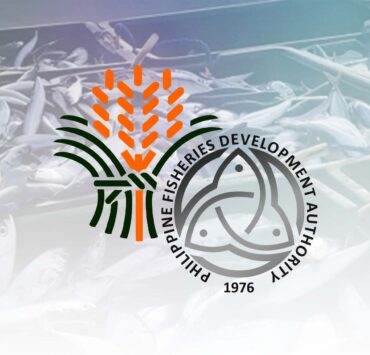Stay calm, win big: The hidden edge of the world’s top CEOs
As an advisor to the presidents of some of the world’s largest companies, and as a “coach of the world’s top CEOs,” I have experienced and proven again and again that the best executives are made, not born. Among all traits great executives must have, one trait stands out as a true game-changer: the ability to stay calm under pressure.
The best executives aren’t born with this superpower— they develop it. This means that no matter where you are today, you can upgrade yourself at any time. Nothing is set in stone.
Emotional resilience is not just a “nice to have” skill—it is the invisible backbone of strong leadership. Without it, strategic thinking collapses under stress. With it, a leader can navigate any storm.
The benefits of mastering emotional calm
Leaders who master emotional calm:
• do not get emotionally upset in stressful situations.
• maintain an analytical frame of mind, even under extreme pressure.
• rarely raise their voice, and when they do, it carries real weight.
They are the ones who can keep their head when everyone else is losing theirs. They make clearer decisions. They command more respect. They lead better businesses.
The truth: You can do anything—joyfully or stressed. The choice is yours. Operating from a place of calm and purpose massively improves outcomes—for yourself, your team and your entire organization.
Why motivation matters
Motivation plays a key role. In moments of extreme pressure, the average person either explodes or collapses. But the leader who has a bigger cause —a vision larger than their immediate discomfort—will stay steady.
When chaos rises, he who stays calm controls the room. And he who controls the room controls the outcome.
In business, calmness is not passive. It’s active leadership.
The respect you earn by staying calm
There’s a psychological truth that many overlook: People do not deeply respect leaders who lose control.
When you react emotionally —shouting, stressing, panicking —people instinctively tune you out. But when you remain calm, centered and analytical—even when things go sideways—you command attention. You inspire trust. Others naturally look to you for direction.
Calmness under pressure makes you magnetic as a leader. It’s one of the fastest ways to earn silent respect and build long-term authority.
Examples of emotional mastery in action
Sir Richard Branson: He faced countless near-disasters with Virgin, from failed business launches to global crises, yet rarely lost his cool. His joyful, relaxed demeanor made it easier for people to follow him through both success and failure.
Mark Zuckerberg: Despite early public setbacks with Facebook, he handled public scrutiny, lawsuits and massive platform challenges while maintaining a nearly emotionless, analytical presence in public settings.
Many self-made billionaires: In my advisory work with ultra-wealthy entrepreneurs and family business owners, I have consistently seen that the quietest man in the room often holds the most power. Their emotional self-control—calm, deliberate, reflective—allows them to move entire markets while others panic.
Common thread: They stay strategic when others get emotional. They keep their long-term vision clear when others are overwhelmed by short-term noise.

The key: Holding your long-term vision
The most emotionally calm leaders I have coached and observed have one thing in common: They hold a vivid, long-term vision of what they are building.
They know that today’s chaos is just a small ripple compared to the ocean they are creating. Their eyes are always on the mountain peak, not the stones on the path.
Because of this focus, they are able to do even unpleasant tasks with a sense of joy and purpose.
I call this “eating the shit sandwich.” Everyone, even the greatest CEOs and entrepreneurs, must do things they don’t like on the way to their goals. The difference is:
• Average people resent these tasks and suffer.
• Exceptional leaders connect the task to their bigger cause— and do it with purpose.
When you work for a cause, not just for yourself, every sacrifice becomes lighter. You can either suffer your way through success or flow joyfully toward it.
Practical methods to build emotional calm
Here’s where it gets actionable. Calmness is a trainable skill. Here are proven methods you can use:
1. Meditation: The secret weapon
Ray Dalio, founder of Bridgewater (one of the largest hedge funds in the world), attributes much of his success to daily meditation.
Why it works: Meditation builds the habit of not reacting instantly to stimuli. It creates a tiny “gap” between stimulus and response — and in that gap lies your leadership power.
Start simple:
• 10 minutes a day.
• Sit quietly.
• Focus only on your breath.
• When thoughts arise, just notice them without judgment and return to breathing.
Benefit: Over time, your brain becomes wired to stay calm under pressure—because it has practiced not reacting.
2. Tactical breathing: Your immediate reset button
When pressure spikes, breathe like a Navy SEAL:
• Inhale for 4 seconds.
• Hold for 4 seconds.
• Exhale slowly for 6-8 seconds.
Do three to five cycles of this, and you will literally reprogram your body’s stress response.
Why it works: It calms your nervous system, slows your heart rate and shifts your brain from fight-or-flight to strategic thinking mode.
3. Perspective is power
Learn to ask yourself two simple questions in any crisis:
Good: “Is this a ripple or a major wave on the lake?” Most events that feel huge in the moment are tiny ripples over time.
Bad: “Am I treating a ripple like it’s a tsunami?” Do not magnify minor problems into full-blown catastrophes.
Example: I once observed a yacht owner in Monaco fire his captain in a rage over a minor scheduling error. The situation could have been handled easily with calm conversation—instead, his outburst cost him a trusted captain, reputation damage among peers and a lawsuit. All over something that, a day later, was utterly insignificant.
Three to thrive: How to master calmness
To master this CEO superpower, focus on these three practical steps every day:
1. Meditate daily to train emotional resilience before you need it.
2. Use tactical breathing when pressure spikes.
3. Keep perspective—always ask: Is this really a tsunami, or just a ripple?
Closing thought
Calmness is your ultimate force multiplier as a CEO. It earns you more respect. It sharpens your strategic thinking. It keeps your organization—and your own destiny— firmly in your hands.
Remember: The best executives are made, not born. Master calmness under pressure and you will elevate every dimension of your leadership.
Tom Oliver, a “global management guru” (Bloomberg), is the chair of The Tom Oliver Group, the trusted advisor and counselor to many of the world’s most influential family businesses, medium-sized enterprises, market leaders and global conglomerates. For more information and inquiries: www.TomOliverGroup.com or email Tom.Oliver@inquirer.com.ph.





















Talent, transition and continuity: 2026 hiring and succession in PH economy